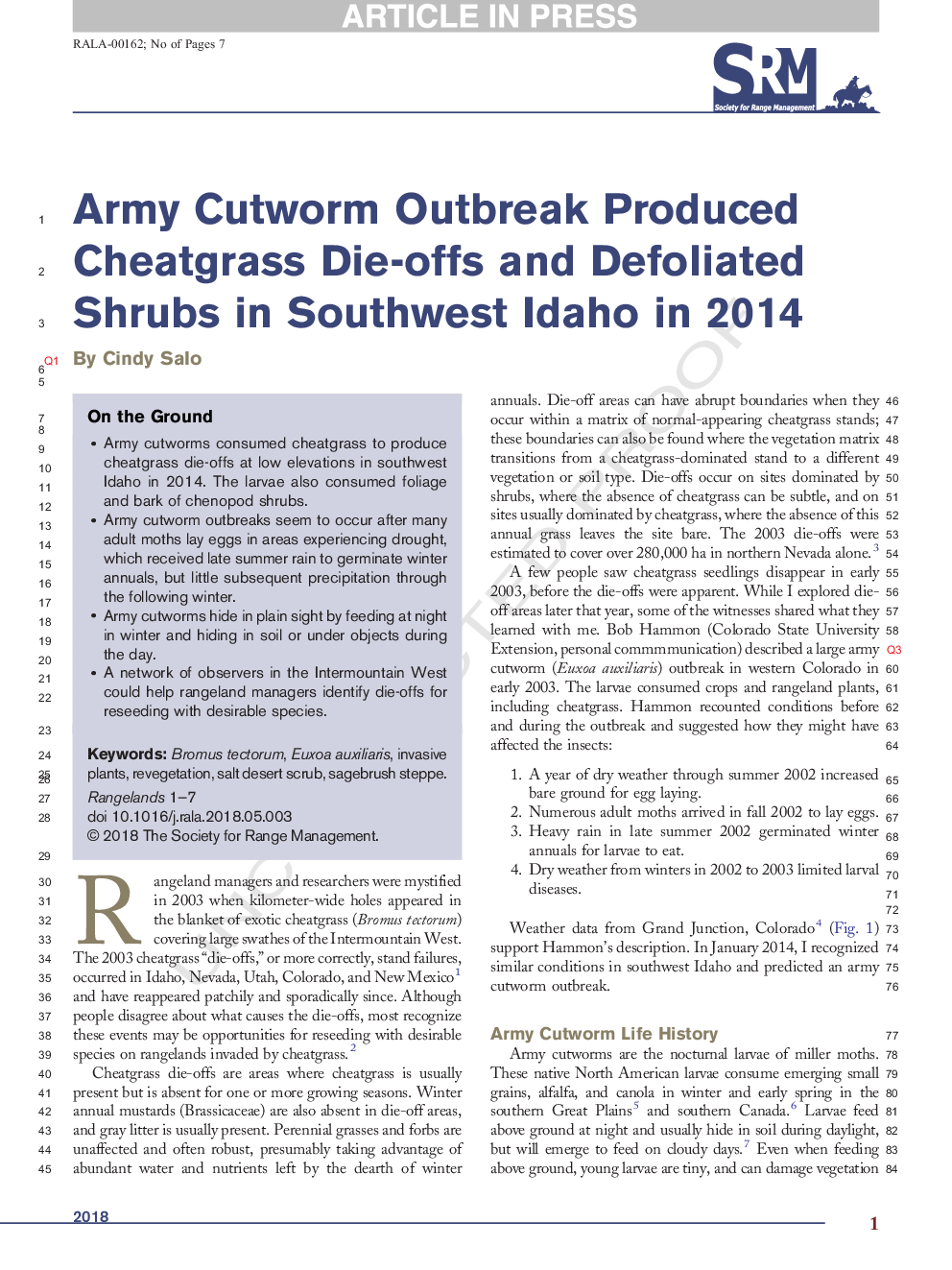| Article ID | Journal | Published Year | Pages | File Type |
|---|---|---|---|---|
| 8965899 | Rangelands | 2018 | 7 Pages |
Abstract
On the Ground
- Army cutworms consumed cheatgrass to produce cheatgrass die-offs at low elevations in southwest Idaho in 2014. The larvae also consumed foliage and bark of native shrubs.
- Army cutworm outbreaks seem to occur after many adult moths lay eggs in areas experiencing drought, which received late summer rain to germinate winter annuals, but little subsequent precipitation through the following winter.
- Army cutworms hide in plain sight by feeding at night in winter and hiding in soil or under objects during the day.
- A network of observers in the Intermountain West could help rangeland managers identify die-offs for reseeding with desirable species.
- Army cutworms consumed cheatgrass to produce cheatgrass die-offs at low elevations in southwest Idaho in 2014. The larvae also consumed foliage and bark of native shrubs.
- Army cutworm outbreaks seem to occur after many adult moths lay eggs in areas experiencing drought, which received late summer rain to germinate winter annuals, but little subsequent precipitation through the following winter.
- Army cutworms hide in plain sight by feeding at night in winter and hiding in soil or under objects during the day.
- A network of observers in the Intermountain West could help rangeland managers identify die-offs for reseeding with desirable species.
Related Topics
Life Sciences
Agricultural and Biological Sciences
Agricultural and Biological Sciences (General)
Authors
Cindy Salo,
